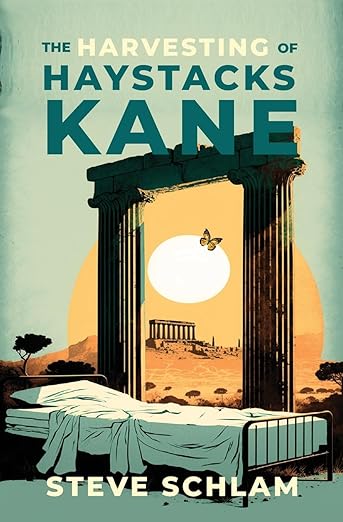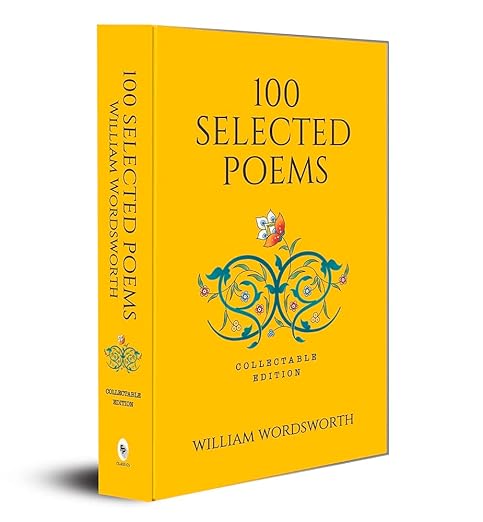 Her Mouth a Palace of Lamps is constructed as a sort of song, with parts corresponding to the Indian raga. After the Prelude and the poem titled “Pakad,” which is a Hindi word signifying a musical phrase, as well as a verb meaning “hold, catch, capture, cling, preserve, protect,” the collection is divided into sections relating to the raga – “Thaat,” the parent scale, “Alaap,” the invocation, a melodic improvisation that introduces the raga, and “Pakad,” which is the essence of the raga – poems that, indeed, capture and preserve memories, or not even “memories” so much as “melodies.”
Her Mouth a Palace of Lamps is constructed as a sort of song, with parts corresponding to the Indian raga. After the Prelude and the poem titled “Pakad,” which is a Hindi word signifying a musical phrase, as well as a verb meaning “hold, catch, capture, cling, preserve, protect,” the collection is divided into sections relating to the raga – “Thaat,” the parent scale, “Alaap,” the invocation, a melodic improvisation that introduces the raga, and “Pakad,” which is the essence of the raga – poems that, indeed, capture and preserve memories, or not even “memories” so much as “melodies.”
Read more →
 We have a copy of The Woman in the Ship by Sapphira Olson to give away!
We have a copy of The Woman in the Ship by Sapphira Olson to give away! Much of the influence can be traced, at least past the Irishman Joyce, to authors like Faulkner who spoke to Americana, the unique nature. Herschel became a wrestler because he wants to travel, and we see vignettes of the places he visits and the character of different places in the US, particularly the south, most directly seen in the character of a disk jockey who interviews him
Much of the influence can be traced, at least past the Irishman Joyce, to authors like Faulkner who spoke to Americana, the unique nature. Herschel became a wrestler because he wants to travel, and we see vignettes of the places he visits and the character of different places in the US, particularly the south, most directly seen in the character of a disk jockey who interviews him Jake La Botz writes with a bruised, musical lyricism, capturing revelations that arrive not through grand redemption but through small, fleeting graces. His stories linger in the aftermath of failure, curious about what it means to find beauty, dignity, and purpose amid addiction, poverty, and social abandonment in Chicago’s forgotten neighborhoods. La Botz does not romanticize poverty or misfortune; instead, he demands on showcasing his characters’ humanity.
Jake La Botz writes with a bruised, musical lyricism, capturing revelations that arrive not through grand redemption but through small, fleeting graces. His stories linger in the aftermath of failure, curious about what it means to find beauty, dignity, and purpose amid addiction, poverty, and social abandonment in Chicago’s forgotten neighborhoods. La Botz does not romanticize poverty or misfortune; instead, he demands on showcasing his characters’ humanity. As well as for the fun of seeing how one person’s life fits into huge historical events, readers will relish this novel for Katy’s personal story; her loves and losses; the warmth of her relationship with her mother; her women friends’ experiences in late 18th century America. The author does a good job of including period details, creating rounded characters and balancing scenes and summary. Since 2026 is the 250th anniversary of the American Declaration of Independence, Katy could not be more timely.
As well as for the fun of seeing how one person’s life fits into huge historical events, readers will relish this novel for Katy’s personal story; her loves and losses; the warmth of her relationship with her mother; her women friends’ experiences in late 18th century America. The author does a good job of including period details, creating rounded characters and balancing scenes and summary. Since 2026 is the 250th anniversary of the American Declaration of Independence, Katy could not be more timely. These lines progress like steps, gently but persistently moving forward at a walking pace, keeping, as Armitage says in “Moths”, with his “frame of mind” and “length of stride” at this time of life. The overall effect is soothing and reverent, taking on the quiet progression of his subject matter, a new cemetery built near Armitage’s home in West Yorkshire. He also invites us to see each tercet as a winged moth: “two wings and a body part” or at least moth-like in the poem’s fragile diminutive nature.
These lines progress like steps, gently but persistently moving forward at a walking pace, keeping, as Armitage says in “Moths”, with his “frame of mind” and “length of stride” at this time of life. The overall effect is soothing and reverent, taking on the quiet progression of his subject matter, a new cemetery built near Armitage’s home in West Yorkshire. He also invites us to see each tercet as a winged moth: “two wings and a body part” or at least moth-like in the poem’s fragile diminutive nature. Here in these poems from the naïve and yet wisdom reply of a little girl to poems about nature or nature poems we see what William Wordsworth does so well: Mixing passion with poetic excellence, displaying poetic mastery in simple diction to give the profound and remarkable through verses that show beauty and mean something and provoke thought and entertain at the same time.
Here in these poems from the naïve and yet wisdom reply of a little girl to poems about nature or nature poems we see what William Wordsworth does so well: Mixing passion with poetic excellence, displaying poetic mastery in simple diction to give the profound and remarkable through verses that show beauty and mean something and provoke thought and entertain at the same time. Nordhaus’s fascination with language (born of her early exposure to Yiddish) is apparent in her handling of form, and her deft orchestration of words. But it’s the use to which she puts these gifts which elevates her work, confers on it a certain authority. It is a gentle authority, capturing the reader’s attention and holding it with skill and purpose, but more than that, there’s a knowingness, a kind of wisdom that comes off the page; whispered perhaps, but evident nonetheless.
Nordhaus’s fascination with language (born of her early exposure to Yiddish) is apparent in her handling of form, and her deft orchestration of words. But it’s the use to which she puts these gifts which elevates her work, confers on it a certain authority. It is a gentle authority, capturing the reader’s attention and holding it with skill and purpose, but more than that, there’s a knowingness, a kind of wisdom that comes off the page; whispered perhaps, but evident nonetheless. There’s a strong sense of place throughout the collection, but with the shading of resigned desperation, almost as keen as describing a memory while it is still being formed. O’Neil often points to the small tortures of acknowledging the sharpness of reality alongside and our shared passivity: “Being lied to isn’t so bad sometimes compared to being aware of how things actually are. You wouldn’t want to go around like that for very long. No one wants to know all the secrets.”
There’s a strong sense of place throughout the collection, but with the shading of resigned desperation, almost as keen as describing a memory while it is still being formed. O’Neil often points to the small tortures of acknowledging the sharpness of reality alongside and our shared passivity: “Being lied to isn’t so bad sometimes compared to being aware of how things actually are. You wouldn’t want to go around like that for very long. No one wants to know all the secrets.” As soon as I started reading Michael Solot’s translation of The Odyssey, I felt instantly connected to the text. It felt so alive, so “modern,” so contemporary, so immediate. It was like reading Homer composed in my native English. Solot uses a conversational register yet it is replete with both elevated and ordinary language with a wide, dynamic range. The story was not only clearly understandable, it was compelling, urging me onward to read to the next chapter. I have never read 400 pages so quickly!
As soon as I started reading Michael Solot’s translation of The Odyssey, I felt instantly connected to the text. It felt so alive, so “modern,” so contemporary, so immediate. It was like reading Homer composed in my native English. Solot uses a conversational register yet it is replete with both elevated and ordinary language with a wide, dynamic range. The story was not only clearly understandable, it was compelling, urging me onward to read to the next chapter. I have never read 400 pages so quickly!  Francis’ impeccable prose style takes us into the cinematic tour de force of the time and ideas of Sir Thomas Browne that make us appreciate the world we live in with specialized medicine and technological advances. At the same time make us weary of the future by ending on the subject of mortality.
Francis’ impeccable prose style takes us into the cinematic tour de force of the time and ideas of Sir Thomas Browne that make us appreciate the world we live in with specialized medicine and technological advances. At the same time make us weary of the future by ending on the subject of mortality. Her Mouth a Palace of Lamps is constructed as a sort of song, with parts corresponding to the Indian raga. After the Prelude and the poem titled “Pakad,” which is a Hindi word signifying a musical phrase, as well as a verb meaning “hold, catch, capture, cling, preserve, protect,” the collection is divided into sections relating to the raga – “Thaat,” the parent scale, “Alaap,” the invocation, a melodic improvisation that introduces the raga, and “Pakad,” which is the essence of the raga – poems that, indeed, capture and preserve memories, or not even “memories” so much as “melodies.”
Her Mouth a Palace of Lamps is constructed as a sort of song, with parts corresponding to the Indian raga. After the Prelude and the poem titled “Pakad,” which is a Hindi word signifying a musical phrase, as well as a verb meaning “hold, catch, capture, cling, preserve, protect,” the collection is divided into sections relating to the raga – “Thaat,” the parent scale, “Alaap,” the invocation, a melodic improvisation that introduces the raga, and “Pakad,” which is the essence of the raga – poems that, indeed, capture and preserve memories, or not even “memories” so much as “melodies.”